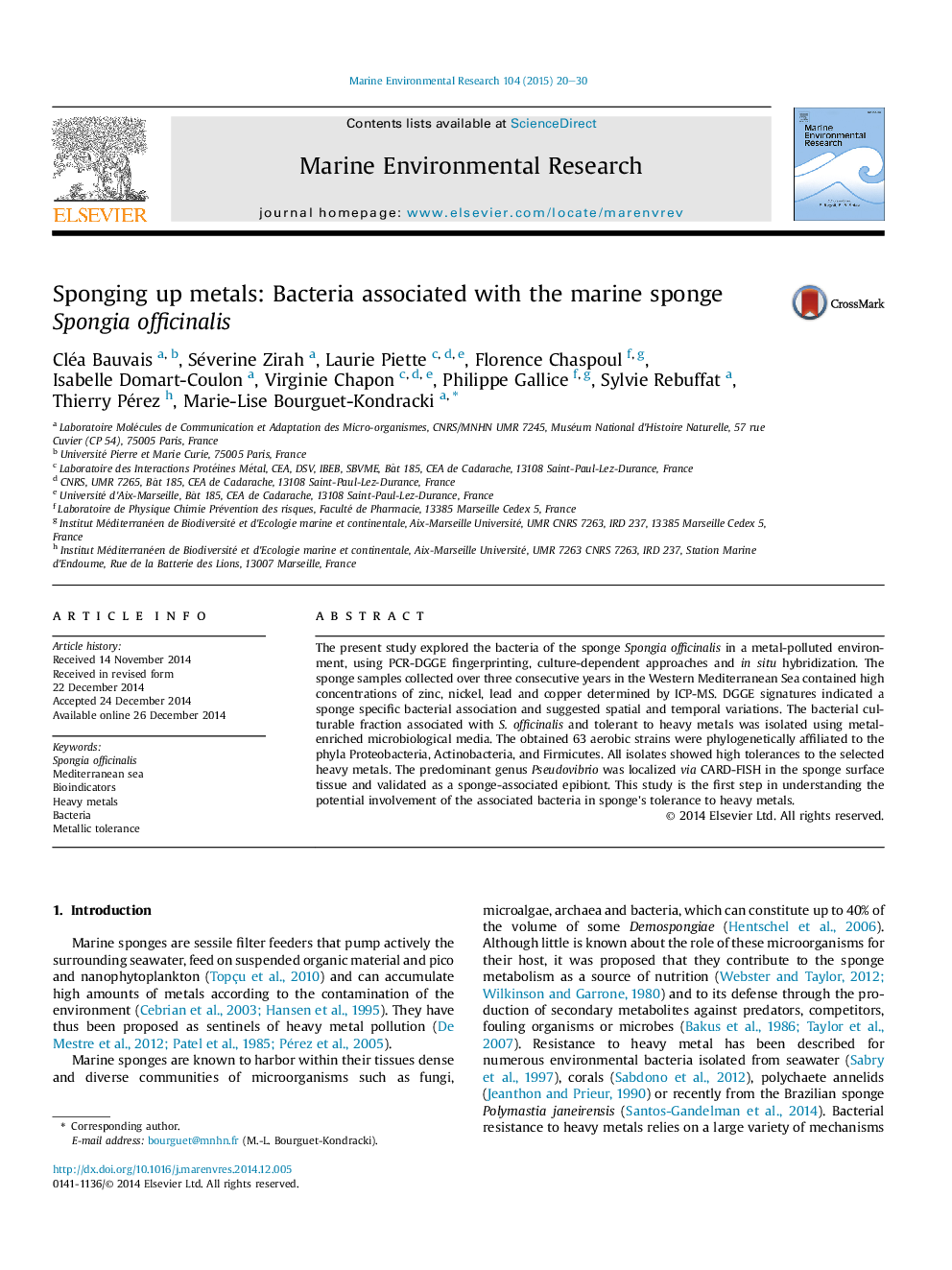| Article ID | Journal | Published Year | Pages | File Type |
|---|---|---|---|---|
| 4550711 | Marine Environmental Research | 2015 | 11 Pages |
•Identification of heavy metal tolerant culturable bacteria from Spongia officinalis.•Indication of sponge specific bacterial association by DGGE signatures.•Localization of the main genus Pseudovibrio by CARD-FISH in the sponge surface tissue.
The present study explored the bacteria of the sponge Spongia officinalis in a metal-polluted environment, using PCR-DGGE fingerprinting, culture-dependent approaches and in situ hybridization. The sponge samples collected over three consecutive years in the Western Mediterranean Sea contained high concentrations of zinc, nickel, lead and copper determined by ICP-MS. DGGE signatures indicated a sponge specific bacterial association and suggested spatial and temporal variations. The bacterial culturable fraction associated with S. officinalis and tolerant to heavy metals was isolated using metal-enriched microbiological media. The obtained 63 aerobic strains were phylogenetically affiliated to the phyla Proteobacteria, Actinobacteria, and Firmicutes. All isolates showed high tolerances to the selected heavy metals. The predominant genus Pseudovibrio was localized via CARD-FISH in the sponge surface tissue and validated as a sponge-associated epibiont. This study is the first step in understanding the potential involvement of the associated bacteria in sponge's tolerance to heavy metals.
